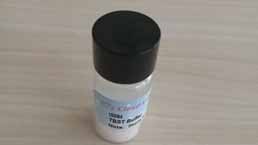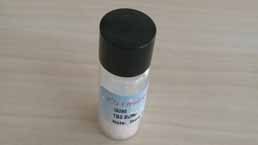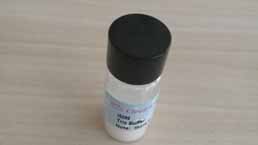Polyclonal Antibody to Procollagen III C-Terminal Propeptide (PIIICP) 

P3CP; C-Propeptide Of Type III Procollagen; Procollagen III Carboxy Terminal Propeptide
- UOM
- FOB US$ 120.00 US$ 280.00 US$ 400.00 US$ 1,000.00 US$ 4,000.00
- Quantity
Overview
Properties
- Product No.PAA963Ra02
- Organism SpeciesRattus norvegicus (Rat) Same name, Different species.
- ApplicationsTesting in progress.
If the antibody is used in flow cytometry, please check FCM antibodies.
Research use only - DownloadInstruction Manual
- CategoryMetabolic pathwayBone metabolism
- SourcePolyclonal antibody preparation, Host Rabbit
- Ig Type IgG, Potency n/a
- PurificationAntigen-specific affinity chromatography followed by Protein A affinity chromatography
- LabelNone
- Immunogen RPA963Ra02-Recombinant Procollagen III C-Terminal Propeptide (PIIICP)
- Buffer Formulation0.01M PBS, pH7.4, containing 0.05% Proclin-300, 50% glycerol.
- TraitsLiquid, Concentration 0.5mg/mL
Sign into your account
Share a new citation as an author
Upload your experimental result
Review

Contact us
Please fill in the blank.
Specifity
The antibody is a rabbit polyclonal antibody raised against PIIICP. It has been selected for its ability to recognize PIIICP in immunohistochemical staining and western blotting.
Usage
Testing in progress.
Storage
Store at 4°C for frequent use. Stored at -20°C in a manual defrost freezer for two year without detectable loss of activity. Avoid repeated freeze-thaw cycles.
Stability
The thermal stability is described by the loss rate. The loss rate was determined by accelerated thermal degradation test, that is, incubate the protein at 37°C for 48h, and no obvious degradation and precipitation were observed. The loss rate is less than 5% within the expiration date under appropriate storage condition.
Giveaways
Increment services
Citations
- Fibrosis of extracellular matrix is related to the duration of the disease but is unrelated to the dynamics of collagen metabolism in dilated cardiomyopathypubmed:27516211
- Left ventricular reverse remodeling is not related to biopsy-detected extracellular matrix fibrosis and serum markers of fibrosis in dilated cardiomyopathy, regardless of the definition used for LVRRpubmed:28004175
- Endothelial‑to‑mesenchymal transition in human idiopathic dilated cardiomyopathypubmed:29115553
- Left ventricular reverse remodeling is not related to biopsy‑detected extracellular matrix fibrosis and serum markers of fibrosis in dilated cardiomyopathy, regardless of the definition used for LVRR10.1007/s00380-016-0930-y
- 12-month patterns of serum markers of collagen synthesis, transforming growth factor and connective tissue growth factor are similar in new-onset and chronic dilated cardiomyopathy in patients both with and without cardiac fibrosis.pubmed:28460256
- Prognostic value of fibrosis-related markers in dilated cardiomyopathy: A link between osteopontin and cardiovascular events.pubmed:29120858
- Extracellular matrix collagen biomarkers levels in patients with chronic thromboembolic pulmonary hypertensionPubmed: 33175289














